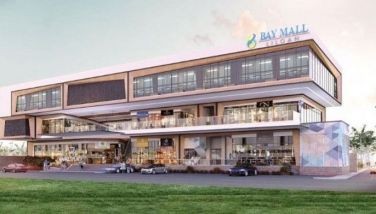CIPC crafts plans to position Cebu as 2nd-home destination
CEBU, Philippines - Aside from attracting investments to Cebu to sustain economic dynamism, the Cebu Investments and Promotions Center (CIPC) is intensifying its plan to craft effective programs to lure non-Cebuanos to invest and make Cebu as their top second-home destination.
CIPC managing director Joel Mari S. Yu said that inviting non-Cebuanos invest in real estate—buying properties here and make Cebu and their second home, could boost economic activity, aside from traditional corporate-driven investments.
“We should now also develop program focused on getting non-Cebuanos to invest in second homes in Cebu and pay living expenses here,” said in a recent economic briefing and investment forum hosted by the Cebu Business Club and the USC (University of San Carlos) Economic Department.
Yu said Cebu have demonstrated capability in getting non-Cebuanos to invest in capital expenses like factories, office space, commercial establishments, and resorts and to spend for operating expenses here. “We will continue to do so.”
In coping with growth, Yu said Cebu should move on capitalizing its attractive livability, which offers a very wide range of living facilities from condominiums, full-service apartments, townhouses, and stand-alone houses.
“All rich people in Manila have properties in Tagaytay. We should [further] convince people in Manila and in Visayas and Mindanao to make Cebu as their second home,” Yu said.
Also, the ever increasing retiree communities in Japan, South Korea, Hong Kong, Taiwan and China are the good target market for promoting Cebu as second home destination.
He said if a proper program will be in place, Cebu will not worry of condominium and property glut in the next few years, while even as of now property brokers are reporting good interest from buyers in both condominium and house and lot units.
Yu said that there is also a paradigm shift in the investment and spending trend among OFWs (Overseas Filipino Workers), and Balikbayans, where in increasing number of them are now eyeing to buy more properties in Cebu, this should be complemented with good investment programs, and promotions.
Cebu as a tropical island that has over 700 kilometers coastline, with average temperature of 22 to 23 degrees Celsius, a storm-free island paradise—assuring year-round swimming and golfing weather, endless potential for other leisure activities, while access is made convenient by an international airport and sea port is good enough to attract both local and foreign property investors.
Besides, he said Cebu is considered as among the safest cities in Asia as attested by low crime rates and high crime resolution statistics.
Yu added that inviting non-Cebuanos to live and spend in Cebu could boost economic activity here, this is one of the few important elements in order to sustain economic vitality, amid the fragile world economic condition.
The cost of real estate is up to four times cheaper in Cebu than in Manila. Yu said the relatively low cost of living in Cebu is one of the attractive come-ons for rich people in Manila to consider Cebu as their vacation destination and invest in second home.
“The cost of power in Cebu is cheaper by about 20 percent than Manila,” he said adding that the cost of broadband and other telecom expenses is the same as in Manila.
With this bid, Cebu is seen to follow the steps of Paris, Hawaii, Spain, and other second home destinations in the world, while property developers now are the right building infrastructure to support this positioning.
- Latest
- Trending




















